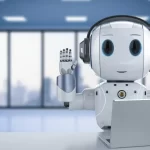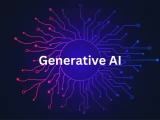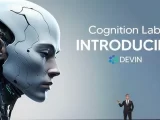
Leveraging AI Tools in Software Engineering: A Comprehensive Guide
March 26, 2024Artificial Intelligence (AI) is revolutionizing software engineering, offering solutions that streamline processes, enhance productivity, and drive innovation. From automation to data analysis, AI tools are reshaping the way software engineers work. In this article, we explore how software engineers can leverage AI tools to improve their workflow and create more efficient and effective software.
Automation and Code Generation: One of the key ways AI is transforming software engineering is through automation. AI-powered tools can automate repetitive tasks, such as code generation and bug fixing. For example, MutableAI is an AI-powered software development tool that integrates with platforms like VS Code and GitHub, offering AI autocomplete for faster coding, and assisting with documentation and code refactoring.
Data Analysis and Insights: AI can analyze massive datasets quickly and accurately, providing valuable insights for software engineers. This is particularly useful in tasks that involve data analysis and pattern recognition. Machine learning algorithms can learn and adapt over time, optimizing software development processes.
Bug Detection and Troubleshooting: AI can help software engineers identify and fix bugs more efficiently. By analyzing code and identifying patterns, machine learning algorithms can often find the source of a bug more quickly than a human programmer. This can save software engineers time and effort, allowing them to focus on more complex tasks.
Enhancing Collaboration and Code Quality: AI tools like Quack AI help software development teams enhance collaboration, streamline processes, and optimize code quality. These tools can analyze code, pinpoint potential issues, and suggest improvements. They also automate repetitive tasks like code reviews and testing, freeing up time for other tasks.
AI Engineer Role: Software engineers can transition to become AI engineers by acquiring additional skills and knowledge in areas like machine learning, data analysis, and artificial intelligence. This transition opens up new opportunities in the rapidly growing field of AI.
Future Outlook: While AI is poised to automate many aspects of software development, it is unlikely to replace high-value developers who work on complex and innovative software. The key to staying relevant in the field is to focus on building sophisticated and creative solutions that leverage the capabilities of AI.
In conclusion, AI tools offer tremendous potential for software engineers to enhance their productivity, automate repetitive tasks, and create more efficient software. By leveraging AI tools effectively, software engineers can stay at the forefront of the industry and drive innovation in software development.
Skills Development: To start leveraging AI tools as a software engineer, it’s important to pursue formal education and training in AI. Learning computer science and programming languages is crucial, as is mastering machine learning and deep learning concepts. Developing skills in data science and analytics will also be beneficial, along with gaining hands-on experience with AI projects and enhancing technical skills with frameworks and tools.
AI in Software Engineering: AI engineering combines principles of systems engineering, software engineering, computer science, and human-centered design to create AI systems. It focuses on building AI models using machine learning algorithms and deep learning neural networks to extract business insights and improve software applications.
Future of Coding with AI: The future of coding is likely to see AI playing a significant role. Some experts predict that 80-90% of regular application code will be generated by AI, with humans focusing on complex integrations, legacy technologies, and systems that are not developed with standard programming.
Limitations of AI: While AI has immense potential, there are limitations to what it can achieve. The essence of creating software lies in creativity, problem-solving, troubleshooting, and effective communication, skills that are inherently human and challenging for AI to replicate.
AI tools are transforming software engineering, offering automation, data analysis, bug detection, and collaboration enhancements. While AI is set to automate many tasks, it is unlikely to replace the creativity and innovation of human software engineers. By embracing AI tools and developing complementary skills, software engineers can enhance their productivity and drive innovation in the field.
Potential Impact of AI on Software Engineering: The impact of AI on software engineering is expected to be significant. As AI tools become more advanced, they have the potential to automate a wide range of tasks, from simple coding to complex software design. This automation could lead to increased efficiency and productivity in software development, allowing engineers to focus on more challenging and creative aspects of their work.
Challenges and Considerations: While AI offers many benefits to software engineers, there are also challenges and considerations to keep in mind. For example, there may be concerns about job security as AI takes over more tasks traditionally performed by humans. Additionally, there are ethical considerations around the use of AI in software development, such as ensuring that AI-powered systems are fair and unbiased.
Advice for Software Engineers: To make the most of AI tools in software engineering, it’s important for engineers to stay updated with the latest developments in AI and how they can be applied to their work. Additionally, engineers should focus on developing skills that complement AI, such as creativity, problem-solving, and effective communication. By combining AI tools with their own expertise, software engineers can continue to drive innovation and make a meaningful impact in their field.
In conclusion, AI tools are changing the landscape of software engineering, offering new possibilities for automation, data analysis, and collaboration. While there are challenges to consider, the future looks promising for software engineers who embrace AI and use it to enhance their work. By staying informed and developing complementary skills, software engineers can thrive in an AI-powered world and continue to push the boundaries of what is possible in software development. As AI continues to evolve, software engineers have a unique opportunity to leverage AI tools to enhance their productivity, automate repetitive tasks, and drive innovation in software development. By embracing AI and developing complementary skills, software engineers can stay at the forefront of their field and make a meaningful impact in the world of technology. As we look to the future, the role of AI in software engineering is only expected to grow, offering new possibilities and challenges for engineers to explore and conquer.

















